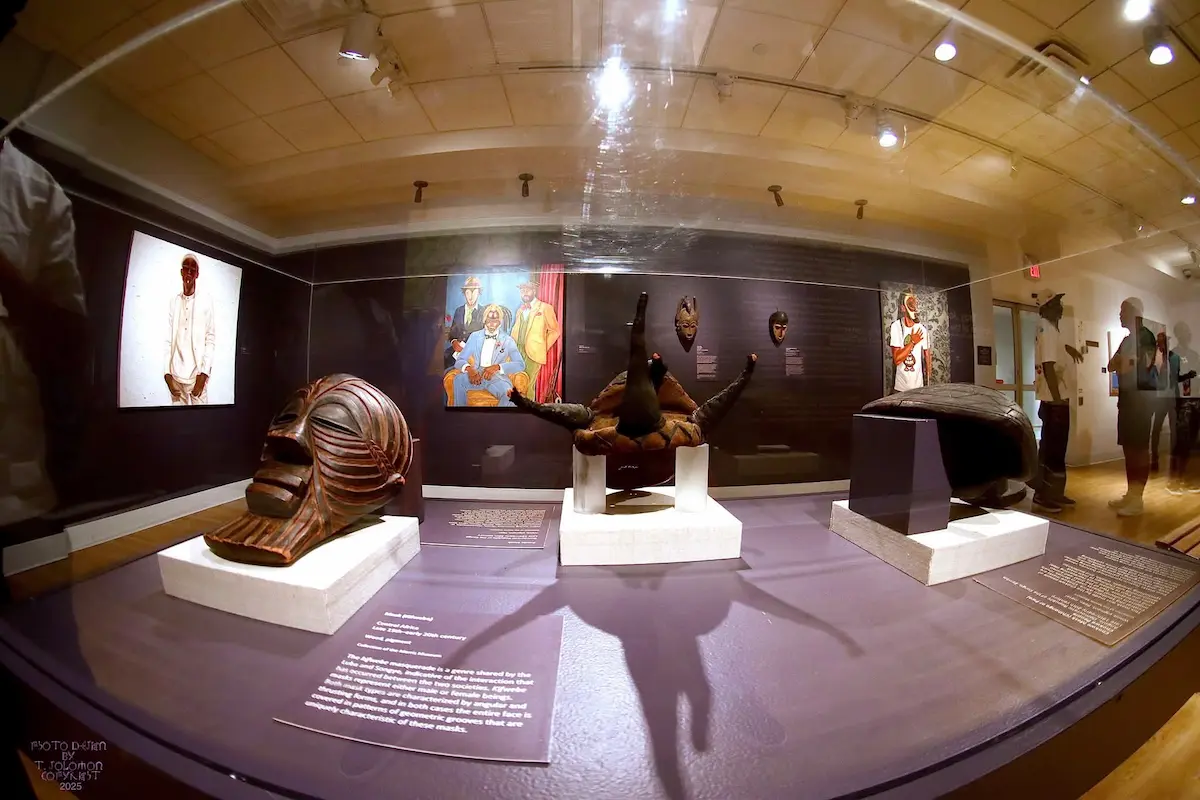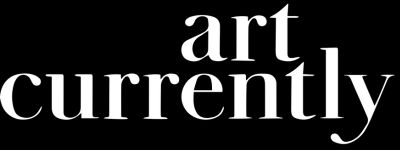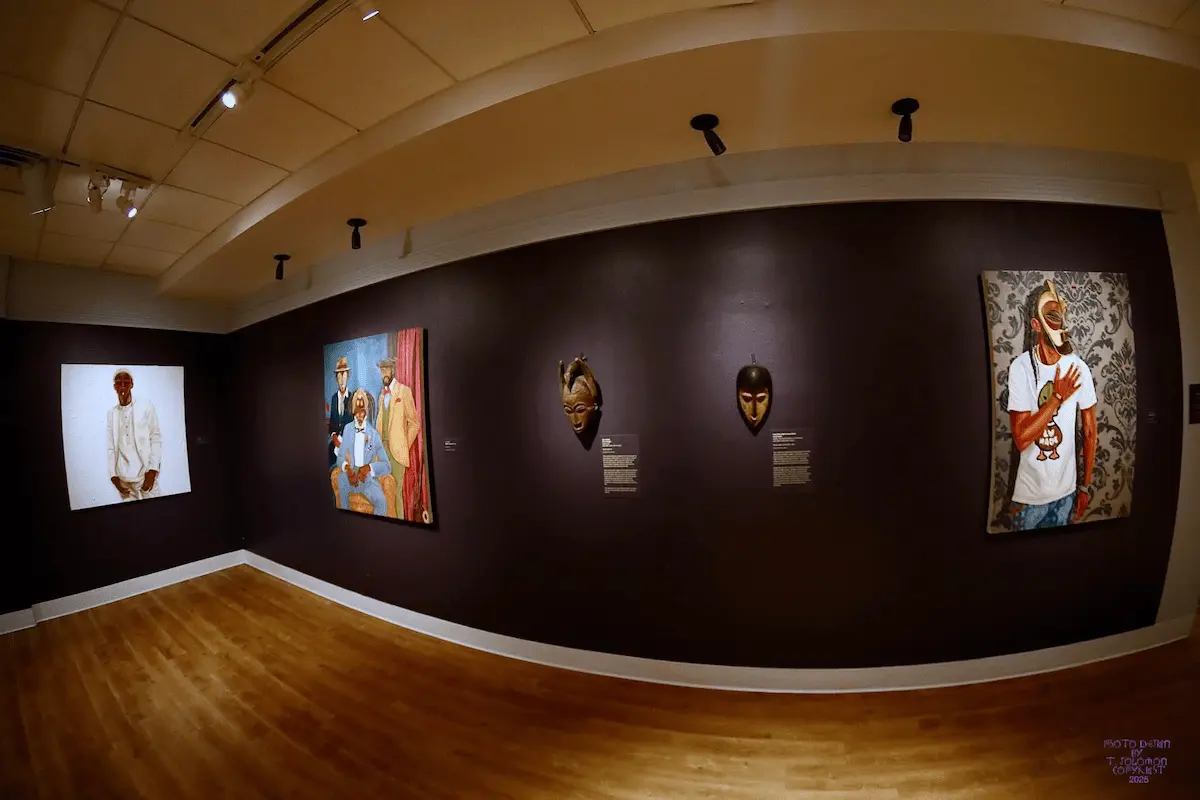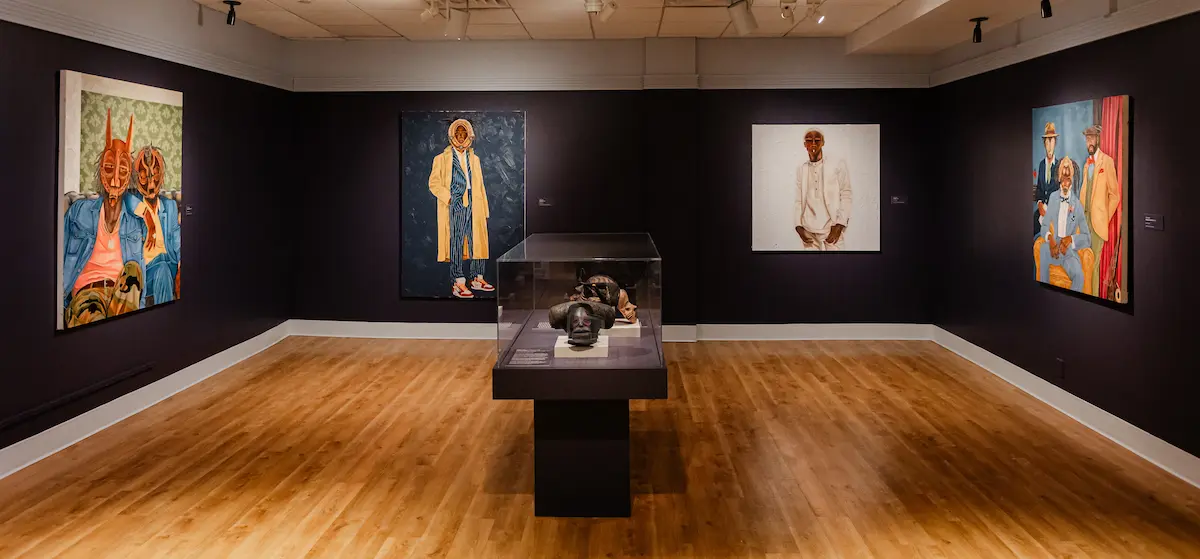Art Militant: Troy Jones’ Masks, Black Identity and Futures at Morris Museum
Troy Jones is a contemporary oil painter from Jersey City whose work borders on Afrosurrealism and Afrofuturism, exploring Black identity while paying homage to African relics. A graduate of William J. Maxwell College of Arts & Sciences at New Jersey City University and an understudy of respected artist Ben Jones for over three decades, Troy Jones has exhibited extensively along the East Coast and internationally. His notably evolving series “Masks” reimagines the Black body as a subject of cultural memory and transformation. In theory, Jones surveys African-American history through iconolatry, embracing the African mask and its symbolism not only as a mnemonic device in art but as a continuous opportunity to re-script the past. Catering to both Afrosurrealism and Afrofuturism, Troy reclaims the Black body in defiance of society’s misrepresentations while disrupting dominant narratives that render it disposable or confined. His masked subjects, though positioned comfortably and free from resistance, are still read as acts of protest when viewed in the context of the New World’s relationship with African-Americans. By directly envisioning futures where Black identity can be self-authored, the vision of the Black Man becomes unbound. These interpretations of the mask speak to the spiritual multiplicity of the diaspora. In Jones’s work, African-American figures escape the burdens of the colonial gaze and are presented as multidimensional and sovereign.
“The Black Man is the Past, Present and the Future! We have always been the bringers of authenticity and creativity. On my artistic journey, I have grown to speak with power, style and soul in my works. As a Black Man, I’m trained to see things through the eyes of an artist. I remember a Professor in college, Bastidas, once told me a story and a particular line has always stuck with me — ‘When we look to the past, it is the artisans who leave a trace for us to overstand history.’ So, when we look at Kemet, or Egypt, as it is known, I reflect on the artisans who created those monuments that still stand today. These were Black men that left us symbols to reference our own history.” Troy replies when asked where he sees the Black man in the future.
Installation view. Courtesy Morris Museum
In “Echoes of the Diaspora” currently on view at the Morris Museum in New Jersey, Troy Jones uses the African mask not only as an object of ancestry but also as a device of dominion, brotherhood, and transformation. Rooted in the visual oration of heritage and existence, his work draws from the formal traditions of African art while weaving in contemporary motifs—from Jordan 1 sneakers to denim jeans, slacks, blazers, tuxedo collars, and zoot suits—all reflecting diasporic evolution.
He elaborates on his use of the mask as a narrative of history: “We all possess a thing called genetic memory. This is the ability to tap into memories of a past time. We must remember the genes passed down from our parents and our legacies as far back as the beginning of time. Our shared memories live inside each and every one of us. As we move through life, we learn to master it, and our craft—this is how you tap in. The Black Man must know where he comes from in order to fully overstand where his future is heading. My artwork reimagines the past to help build a new language for the future, now that we occupy museum walls and are major contributors to the canon of global art.”
The body of work is also exhibited next to a selection of African masks from his collection. The collective exhibition encourages viewers to critically engage in a dialogue between memory and metamorphosis, bringing together the spirits of origin and innovation. These two mediums converge, allowing the spectrum of masks to become both mystical and futuristic—symbolic of ideas unimpeded by fixed narratives and free to reposition themselves across space and time.
Troy Jones "Echoes of the Diaspora" is on view through October 26, 2025.
Image courtesy Tee Solomon.
